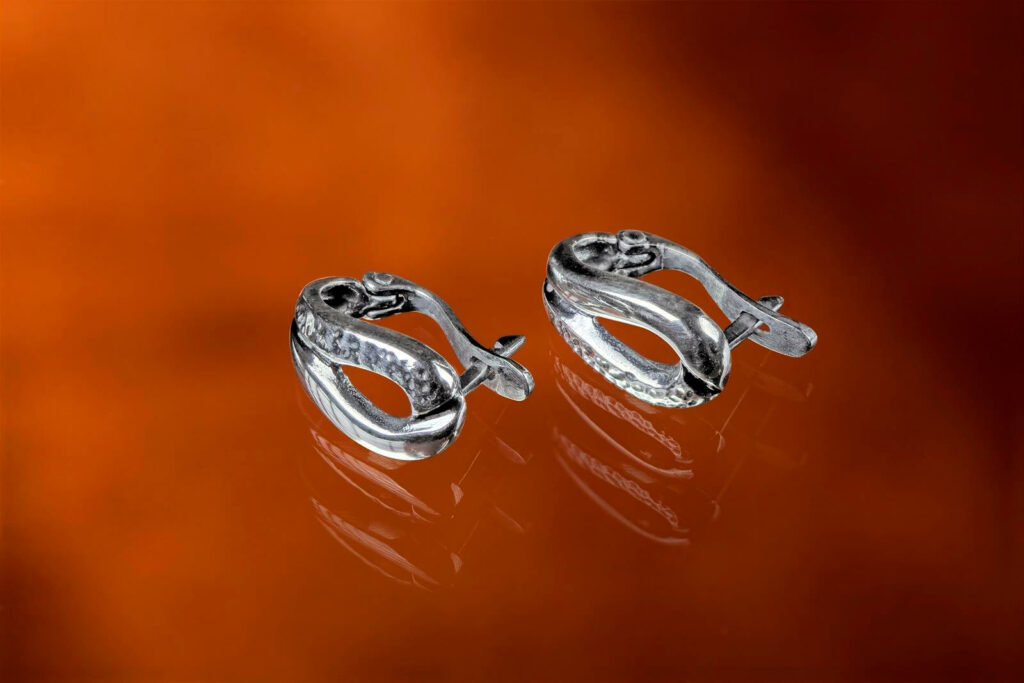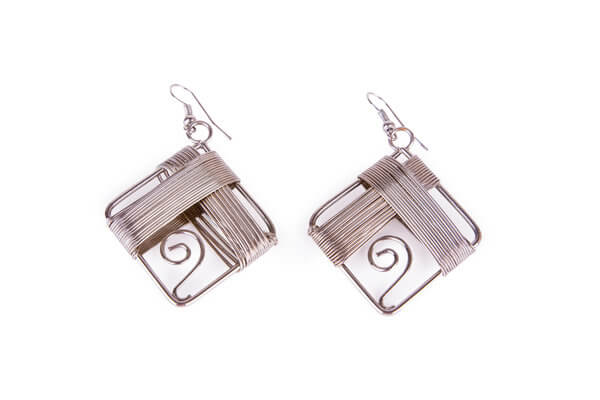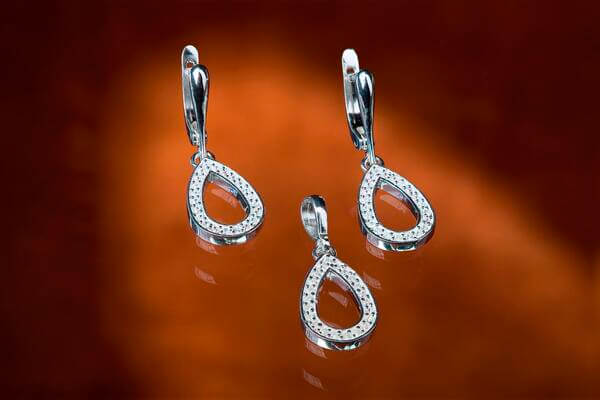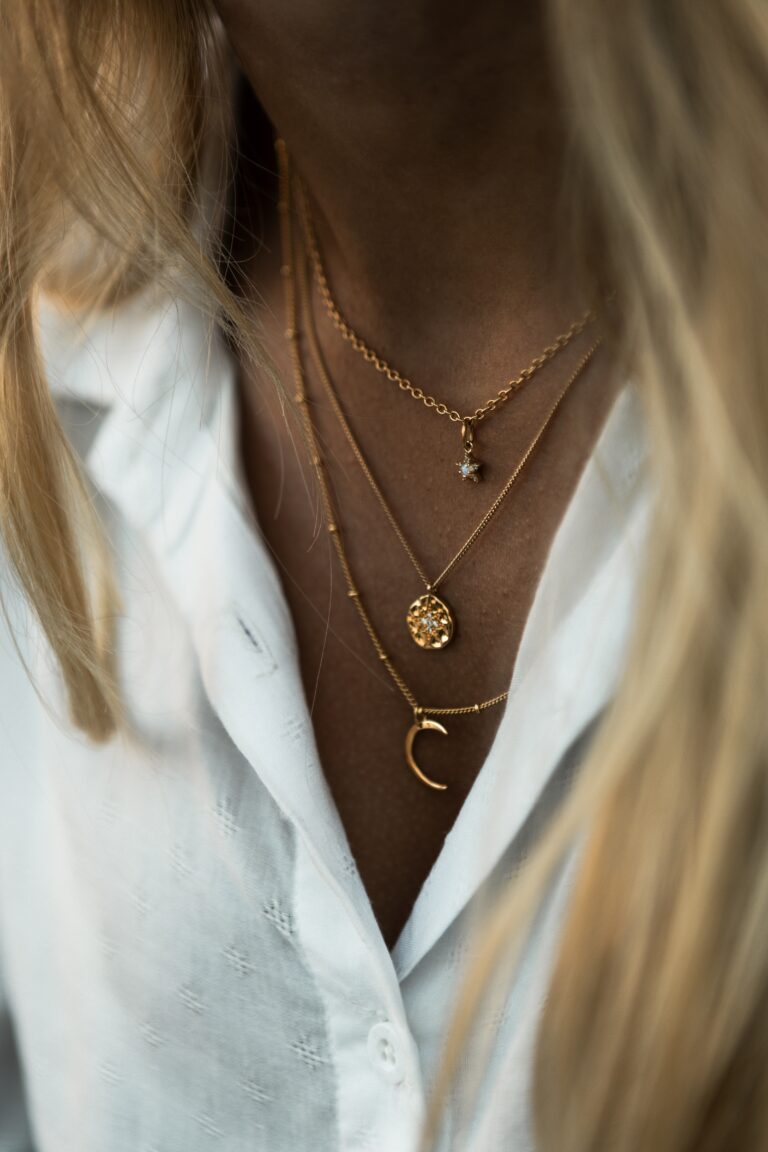If you have sensitive ears, finding a pair of silver earrings for sensitive ears that won’t irritate your skin can be a challenge. Fortunately, silver earrings are a great option for those with sensitive skin. Silver is hypoallergenic and will not cause any irritation or discomfort. That being said, there are still some important things to consider when selecting silver earrings for sensitive ears. Let’s take a look at what you should keep in mind!
Look for Hypoallergenic Options
When shopping for silver earrings for sensitive ears, look for options that are labeled as hypoallergenic. Hypoallergenic jewelry is made from materials that are unlikely to cause allergic reactions in people with sensitive skin. Many jewelry companies make their pieces using hypoallergenic materials, so you should have no trouble finding a pair of silver earrings for sensitive ears that won’t irritate your skin.

Check the Quality of the Metal
When searching for silver earrings for sensitive ears, be sure to check the quality of the metal used in each pair. High-quality sterling silver will be marked with symbols like “925” or “STER” and will last much longer than lower-quality pieces made from cheaper metals like nickel or zinc. Be sure to read product descriptions carefully before making a purchase and avoid any pieces labeled as “silver plate” or “silver plated”—these contain very little actual silver and may not be safe for those as silver earrings for sensitive ears.
Choose Simple Styles
Simple styles are usually safer than intricate designs when choosing silver earrings for sensitive ears. While intricate designs can look beautiful, they often contain more metal which can increase your risk of an allergic reaction if you have sensitive skin. Stick with simpler styles and shapes—like studs and hoops—to keep irritation at bay!
Look for Sterling Silver
When shopping for silver earrings for sensitive ears, make sure that the earrings are made from sterling silver (or 925 silver). Sterling silver is an alloy of 92.5% pure silver and 7.5% other metals such as copper and zinc. This combination makes it much less likely to irritate pure silver which can contain trace amounts of nickel or other alloys that may be irritating to sensitive skin.
Pay Attention To Finishing Techniques
It is also important to pay attention to the finishing techniques used on the earring posts and hooks as this can affect how well they hold up over time. Look for posts and hooks that have been buffed with a polishing cloth or a special cleaner specifically designed for metal jewelry items. The smoother the metal surface, the less likely it is to irritate when worn against your skin.

Check The Quality of The Earring Backs
Make sure that you check the quality of the earring backs before making your purchase. Low-quality backs can easily break, causing sharp edges that may irritate sensitive ears. Make sure that they are securely attached to the post so they do not come off easily when worn and check that they have been securely fastened into place with glue or another adhesive material before wearing them.
Safety and Care Tips
In addition to selecting the right metal for your earrings, there are some safety tips that you should keep in mind when wearing them. Be sure to remove your earrings before showering or swimming as water can cause corrosion over time. After each use, clean your earrings with a soft cloth or cotton swab and mild soap solution before storing them safely away in an airtight container. Additionally, always check your earrings before each use for any damage or signs of wear and tear as this could increase the chances of infection if worn continuously over time.
Silver earrings can be a great choice for those with sensitive ears who want stylish jewelry without any irritation or discomfort! Just make sure you look for sterling silver pieces, pay attention to the finishing techniques used on the post and hook, and check out the quality of the earring backs before making your purchase. With these tips in mind, you’ll find beautiful and comfortable silver earrings in no time!
Everything You Need to Know About Hypoallergenic Metals
If you’re allergic to certain metals, you know how difficult it can be to find jewelry and accessories that won’t cause a reaction. Fortunately, there are a few hypoallergenic metals out there that are safe for you to wear. In this blog post, we’ll cover the list of hypoallergenic metals and provide tips on how to identify them.

What Are Hypoallergenic Metals?
Hypoallergenic metals are metal alloys that contain low levels of nickel or other potentially allergy-causing agents. These metals do not produce an allergic reaction in most people. While they may still cause reactions in some individuals, these reactions tend to be much milder than those caused by conventional metals such as gold and silver. There is no single definition for what constitutes a “hypoallergenic” metal; instead, it’s generally up to the manufacturer or retailer to label their products as hypoallergenic.
List of Hypoallergenic Metals
There are several different types of hypoallergenic metals available on the market today. Some of the most common ones include stainless steel, titanium, niobium, and platinum. Each of these metals has its unique properties and benefits. For example, stainless steel is strong and durable while titanium is lightweight yet still resistant to corrosion and scratching. Niobium is also lightweight but has an additional benefit—it’s non-magnetic! Lastly, platinum is extremely rare (and expensive) but it doesn’t tarnish or corrode easily as other metals do.
Identifying Hypoallergenic Metals
The easiest way to identify a hypoallergenic metal product is by looking for a label or tag stating that it’s made from hypoallergenic materials such as “nickel free” or “lead-free.” It’s also important to note that some manufacturers may use terms like “stainless steel” without actually specifying whether it’s hypoallergenic or not—so always look for the specific details when purchasing jewelry items or accessories made from metal alloys. Additionally, if you’re unsure about any particular item, you can always consult with your doctor before making a purchase just in case!
In conclusion, there are several different types of hypoallergenic metals available on the market today. From stainless steel and titanium to niobium and platinum—there’s something out there for everyone! To ensure you buy only safe materials, always look for labels that clearly state “hypoallergenic” or “nickel free” when shopping around online or in stores. And if you’re ever unsure about an item’s safety level—consult with your doctor first before making any purchases! With these tips in mind—you should have no problem finding jewelry or accessories made with safe materials for yourself or your loved ones!


